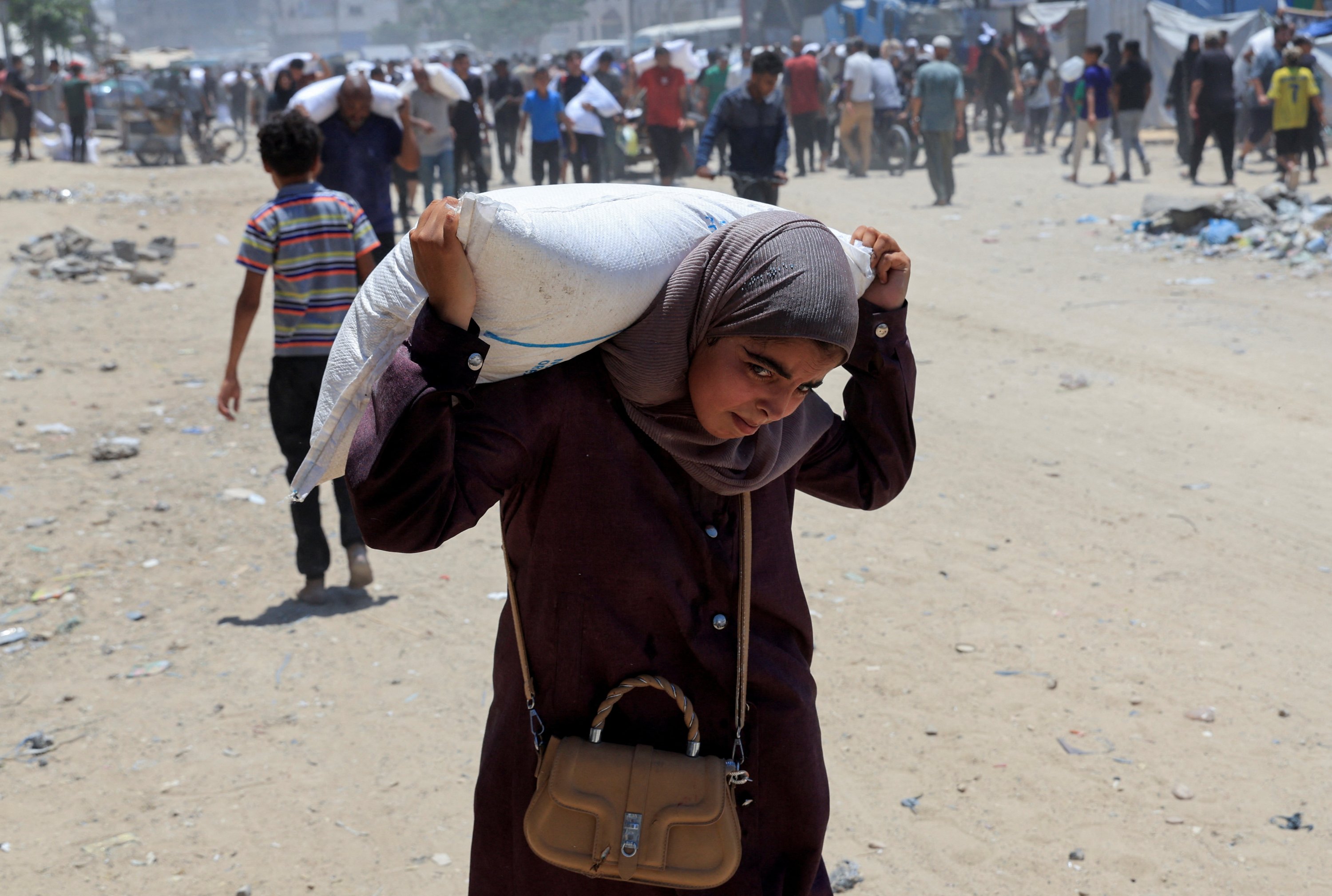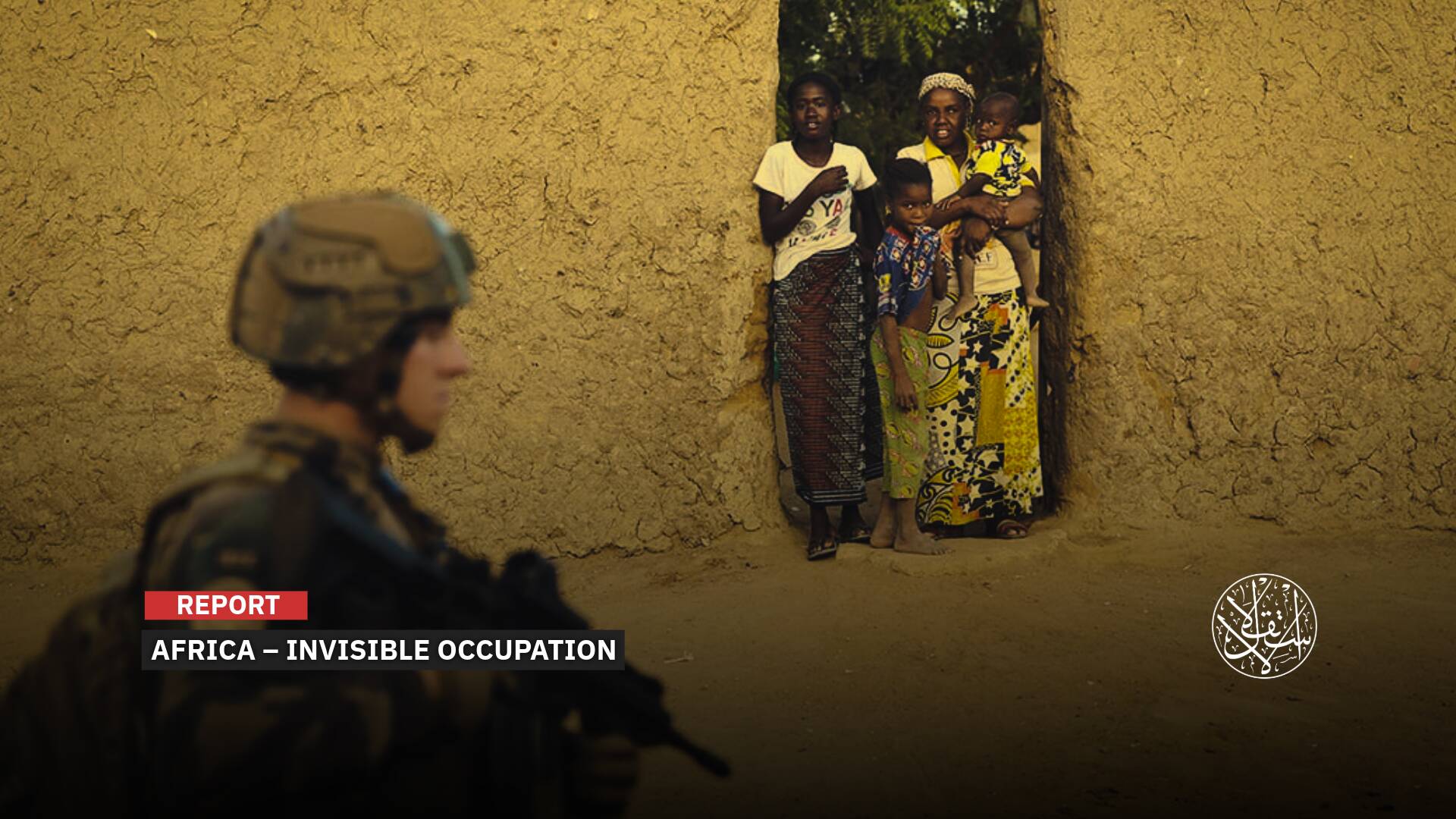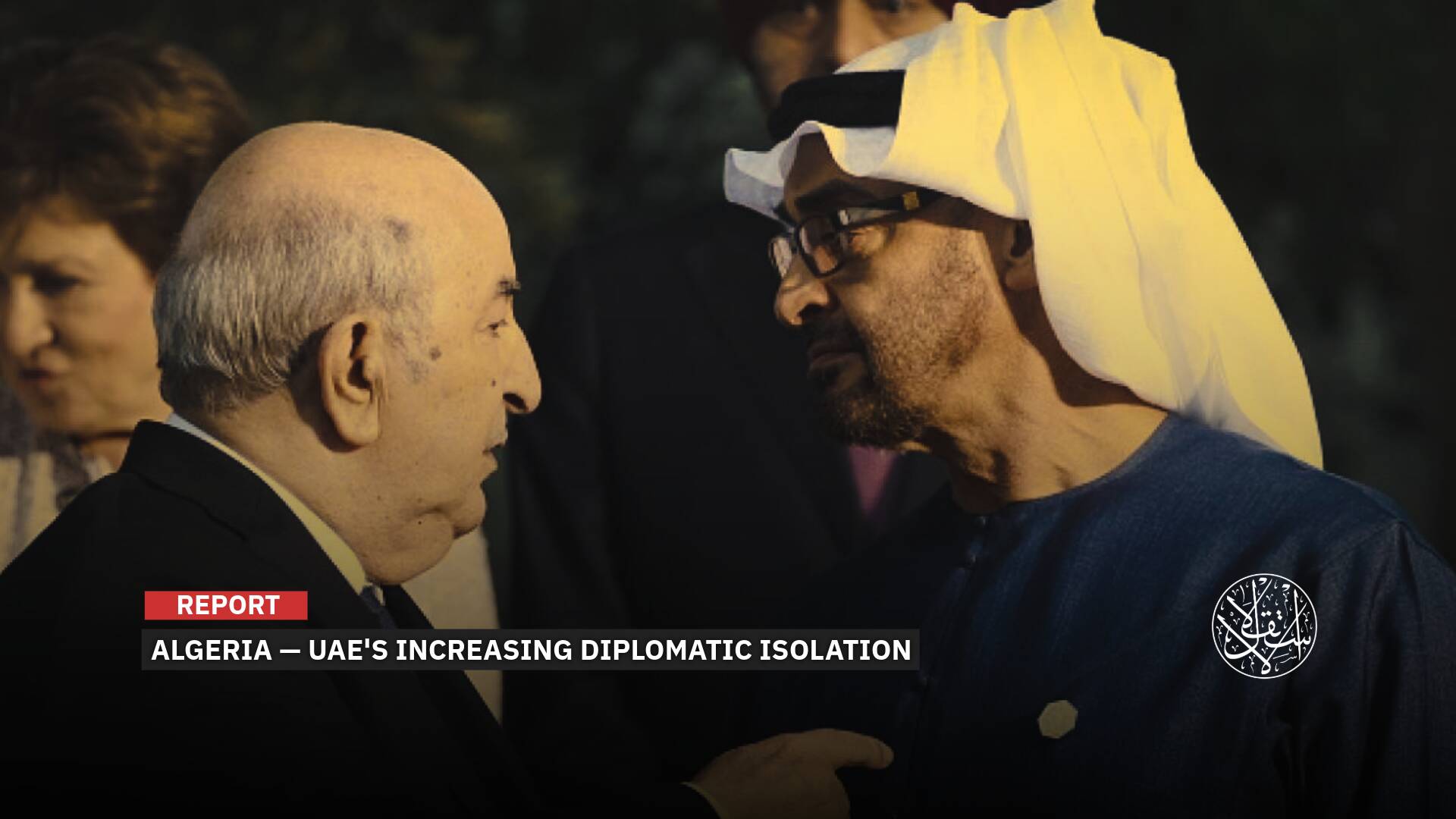How 'Israel' Turned Aid Flour Into a Weapon Killing Gazans

“The Israeli government has been accused several times over the last two decades of flooding Gaza with drugs.”
Videos and photos recently circulated on social media showing the discovery of Oxycodone pills, labeled 80G, hidden inside tin foil while opening bags of flour delivered to citizens through aid distribution centers in Gaza.
Local authorities in Gaza held Israel fully responsible for this crime, considering it part of a systematic policy to spread addiction and destroy Palestinian society from within.
The incident also sparked widespread outrage among Gazans, amid accusations of deliberately targeting civilians.
Donor agencies denied these allegations, describing them as misleading rumors and campaigns promoted by groups hostile to Washington.
Israeli officials and media outlets ridiculed the news, considering it Hamas propaganda, while human rights organizations appealed to provide access to neutral laboratories to test samples of the suspicious pills.
The controversial incident came amid a worsening humanitarian crisis in the Gaza Strip, where residents are suffering from severe shortages of food and medical supplies due to the ongoing blockade and military operations.
It's worth noting that Israel's war on the Gaza Strip, which began on October 7, 2023, has claimed the lives of more than 56,500 Palestinians and injured 133,419 others.
Heinous Crime
In a dangerous development that reflects a new face of the brutal Israeli war on Gaza, the Government Media Office in the Gaza Strip announced the discovery of narcotic pills inside bags of flour that arrived via what it called death traps operated under the so-called US-Israeli aid.
According to several reports, Oxycodone pills were detected in several flour aid shipments arriving in various areas of the Gaza Strip, sparking widespread shock among residents and prompting local authorities in Gaza to open an urgent investigation.
The office stated, “What's more serious is the possibility that some of these narcotic substances may have been deliberately ground or dissolved in the flour itself, which increases the scope of the crime and transforms it into a serious attack directly targeting public health.”
It emphasized that Israel's use of drugs as a soft tool in its dirty war against civilians and its exploitation of the blockade to smuggle these substances into aid and assistance constitutes a war crime and a serious violation of international humanitarian law.
In a related context, the office called on citizens to treat with caution any food aid arriving from supply centers operating outside the supervision of the UN and recognized international organizations, to thoroughly inspect each shipment, and to immediately report any suspicious materials.
Oxycodone is one of the most powerful opioid painkillers and is used to relieve severe and chronic pain, such as cancer pain or pain following major surgery.
However, the 80 mg dose is considered too strong and should only be given to patients whose bodies are accustomed to opioids at lower doses, to avoid the risk of poisoning or death, according to medical websites.
Oxycodone is subject to international drug control agreements and may only be used under strict medical supervision.
Activists believe that the presence of this drug in this form in the flour aid bags arriving in the Gaza Strip raises major questions about who is introducing or distributing such substances into people's food.
Severe addiction to this drug can lead to decreased heart rate, impaired consciousness and awareness, and severe respiratory depression.
Oxycodone was the leading cause of drug-related deaths in the United States, according to the Centers for Disease Control and Prevention in 2011.

Silent Genocide
With the spread of news about the drug-tainted flour, more than 170 NGOs demanded the immediate termination of the Gaza Humanitarian Foundation's operations.
In response, the United States granted the Gaza Humanitarian Foundation approximately $30 million to continue its work.
UNRWA Commissioner-General Philippe Lazzarini said: “This aid is abhorrent and leads to loss of life in various forms, not just through gunfire.”
In fact, this is not the first time “Israel” has attempted to flood Gaza with drugs. Tel Aviv police previously seized a gang sending drugs to Gaza.
At that time, Israeli Attorney General Bar-Yosef said, “In Israel, we combat drug smuggling into Gaza and prevent it because it threatens national security.”
In turn, Political analyst Ismail Maslamani warned in a statement to Al-Estiklal that the story of the discovery of narcotic pills in the aid flour is being orchestrated in a way aimed at harming the reputation of the Palestinians and portraying them as a society that consumes drugs amid its humanitarian suffering.
“This incident, if proven, constitutes a potential conspiracy aimed at dismantling the Palestinian social fabric, sowing chaos, and spreading forced addiction under the guise of humanitarian aid in a society exhausted by a nearly two-year war and a years-long siege,” he said.
He pointed out that “food tampering is part of Israel's silent genocidal strategies, where narcotics, carcinogens, and other sterilizing substances are inserted into food aid to inflict long-term harm on Palestinians.”
Mr. Maslamani cited practices as examples of genocidal tactics used to destroy communities, such as the use of anthrax in clothing prepared for Native Americans.
The use of opiates as weapons in colonial warfare is not new. For example, the British used opium to undermine the Chinese Empire in the 19th century.
The seeding of opiates in Gaza by the Israeli occupation is not a new allegation.
The Israeli government has been accused several times over the last 2 decades of flooding Gaza with drugs, specifically Tramadol in an attempt to both pacify the population and harbour addiction in the region.
The issue was brought into sharp focus in a 2010 documentary that highlighted Tramadol use in Gaza in the aftermath of the Israeli ‘Operation Cast Lead’.
Similar accusations were made in 2017 by The Gaza Police Anti-Drug Unit, which argued that the Israeli authorities turn a blind eye to drugs when they enter Gaza hidden inside commercial goods.

Dangerous Plan
On the legal front, international humanitarian law experts stated that the rumors circulating in the Gaza Strip about the discovery of narcotic pills in aid shipments could be classified as a serious violation of the Geneva Conventions, especially Article 23, which prohibits the use of aid as a weapon of war and affirms the right of civilians to access food and medicine without exploitation or threat.
They added that exploiting medical or food aid for hostile purposes is not only a moral crime, but could also be classified as a disguised biological/chemical weapon if it is proven that the food components have been deliberately manipulated in a way that leads to harm, addiction, or death.
In this context, human rights activists emphasized that any attempt to drug or poison a population en masse falls within the concept of moral and social genocide, which can be prosecuted in international courts because it goes beyond individual harm to an attempt to dismantle an entire society from within.
The incident also raised questions about the legitimacy and independence of the new relief channels that “Israel” and the U.S. have begun using to bypass official crossings and UN agencies.
It has become clear, according to observers, that this aid is being distributed without any UN or medical oversight, opening the door to serious violations that are difficult to track or document.
Apart from the oversight of the UN and international organizations, Tel Aviv and Washington have been implementing a limited aid distribution plan since May 27, while the Israeli army has been shooting at Palestinians queuing to receive aid, forcing them to choose between starvation and being shot.
This comes as Israel has been tightly closing the Gaza crossings to trucks carrying supplies and aid, piling up at the border since March 2, allowing only a few dozen trucks to enter, while Palestinians in Gaza need at least 500 trucks per day.
In this context, the UN expressed its deep concern about what it described as Israeli military humanitarian aid, stressing that this approach contradicts international standards regulating the distribution of humanitarian aid and ensuring the safety of civilians.
Local authorities in Gaza have repeatedly called on the international community and UN agencies to close these aid centers, which they described as death traps, noting that they have become daily tools for killing, enticement, and deliberate genocide.
According to the Ministry of Health in Gaza, this approach has resulted, since the plan's implementation began, in approximately 600 Palestinian deaths and more than 4,200 injuries, most of whom were targeted in the vicinity of distribution centers or while waiting for aid trucks to arrive.

In parallel with the opioid scandal, Israeli soldiers and officers speaking to Haaretz admitted to deliberately killing unarmed Palestinians queuing for food at aid distribution points in Gaza.
One soldier described the scene as a killing field, stating: “Where I was stationed, between one and five people were killed every day.”
Sources
- What we know about reports of oxycodone in flour bags distributed by U.S.-Israeli aid centers in Gaza
- Oxycodone laced flour is not ‘humanitarian aid’ it is bioterrorism
- Statement on Allegations of Drug-Laced Flour Bags Distributed by Israel in Gaza
- 'It's a Killing Field': IDF Soldiers Ordered to Shoot Deliberately at Unarmed Gazans Waiting for Humanitarian Aid













